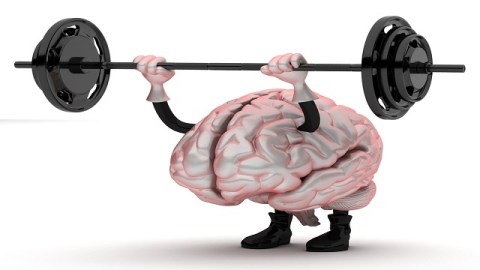Flexing the Brain: A Q&A with Michael Scanlon

Millions of people log on to Lumosity daily to flex their brain muscles–and hopefully improve memory, attention and general cognitive performance in the process. But this brain training site has recently garnered attention for a large-scale survey which found that better brain performance was linked to 7 hours of sleep per night, aerobic activity 2-3 times per week and a daily cocktail. While the overall efficacy of brain training remains hotly debated, Michael Scanlon, co-founder and Chief Scientific Officer of Lumos Labs (creator of Lumosity), discusses the findings from the study, what surprised him most and what we can take away from correlational data.
Q: Why did Lumosity undertake this particular study?
Michael Scanlon: We collect a ton of data on people’s cognitive performance–and we save all of it. We want to use this data to better understand human cognition in general and better understand what factors go into improving cognitive performance and overall brain health. But while we have a lot of data on performance and who some of the best performers are, we didn’t know all that much about what they were doing on a day-to-day basis. So we randomly surveyed 750,000 users and asked them about how much they sleep, what kind of food they eat, how much they exercise they get and other things like that. We had a suspicion that these lifestyle factors would affect cognition–and the results suggest that they do.
Q: Your finding that only a couple days of exercise per week is correlated with better cognitive performance goes against some of the hard research findings that say that daily exercise is critical to brain health. How do you sync that up?
Michael Scanlon: There’s a very slight decrease in performance after two or three days per week of exercise–but really, that decrease is miniscule. We’re not really sure what that means. Obviously, we don’t think that exercising more than two or three days a week is bad for you. We’re not saying that at all. But there may be diminishing returns cognitively and you may get the same improvement from just committing to a few days of exercise a week.
Q: Your findings also suggest that a daily alcoholic beverage and exactly 7 hours of sleep per night are important to performance. Did any of these results surprise you or stand out as particularly interesting?
Michael Scanlon: I found the sleep one very interesting. When you look at the raw data, people who have seven hours of sleep have the highest performance. If you slept less than that or more than that, performance declined. We saw this peak and we’re not sure why–except that it’s very interesting. But it’s important to note that this is a correlational study. So we don’t know if this is really about sleep itself or some other different factors that are related to sleep.
Q: That raises a good point. You have a disclaimer that this is just a correlational study between habits and performance on Lumosity tasks. There is no way of knowing whether there is a direct relationship between these lifestyle choices and brain function. Given that, what do you think we can takeaway from this data?
Michael Scanlon: I think the big takeaway is that all of these factors we measured as important are really very moderate. There’s a really consistent story here that little changes may make a big difference. It looks like you don’t have to get a ton of exercise every week. You don’t have to be a teetotaler. And you don’t have to sleep 12 hours a night. And I think that’s very interesting–and may be what someone needs to see in order to start implementing a few healthy changes in their own lives.
Credit: jimmi/Shutterstock.com




